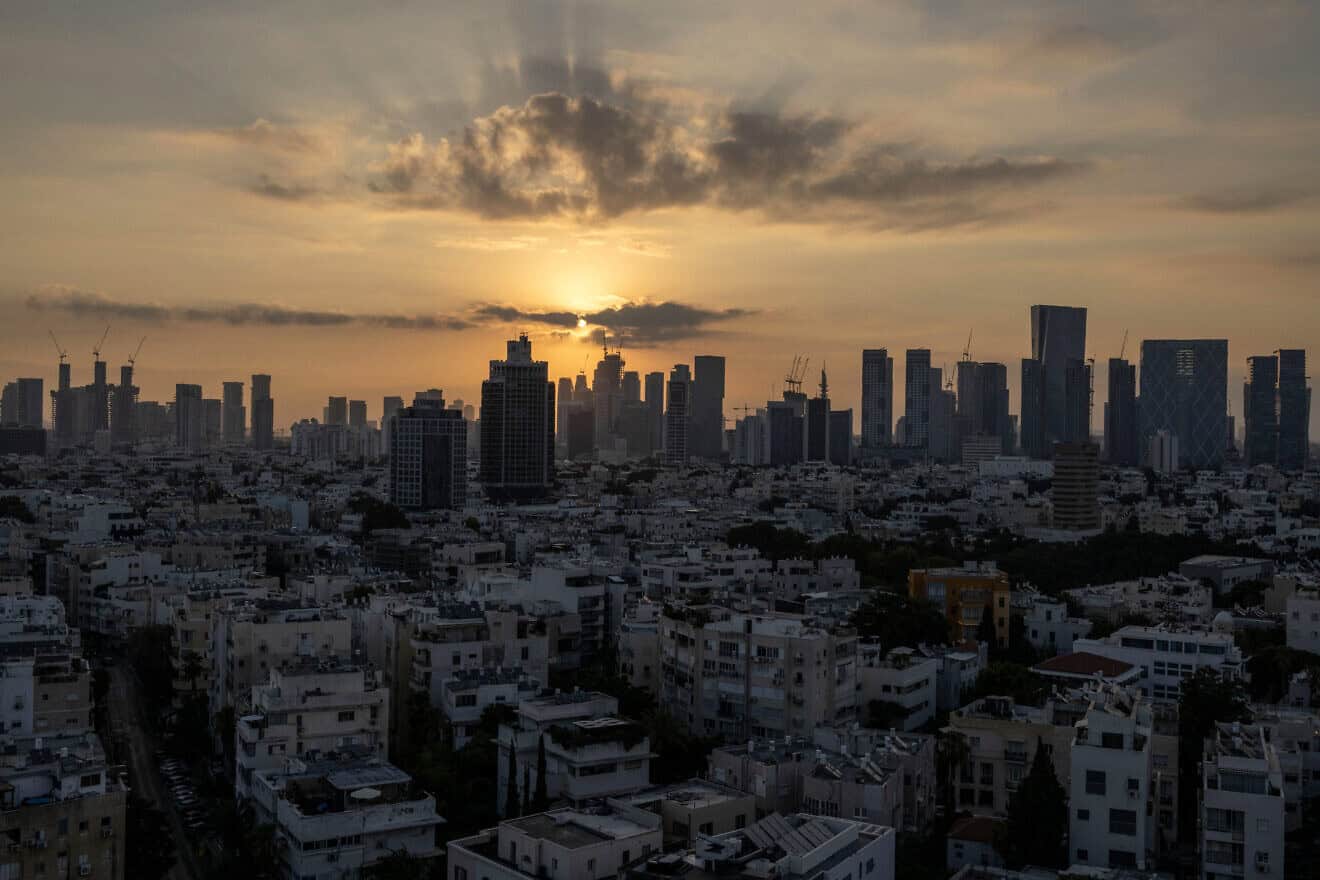Israel remains on high alert for potential attacks by Iran and its regional terror proxies, with the security establishment assessing that Hezbollah will strike first.
Both the Islamic Republic and its Lebanese terror army have vowed revenge for the targeted killings last week of Hamas leader Ismail Haniyeh in Tehran and senior Hezbollah official Fuad Shukr in Beirut.
Israel’s Channel 12 News reported on Wednesday that Hezbollah Secretary-General Hassan Nasrallah could see a window of opportunity to initiate an attack in the coming days. A large-scale intelligence effort is underway to identify the timing and nature of the response, according to the report.
Nasrallah said in a speech on Tuesday that the terror group will retaliate for the Shukr assassination. Several hours before the speech, Al Akhbar, a pro-Hezbollah newspaper in Beirut, published a front-page article suggesting that Hezbollah would likely target Tel Aviv.
The newspaper’s editor-in-chief Ibrahim al-Amin wrote that Nasrallah believes there is maneuvering room in terms of Israeli civilians because civilians were killed during the Shukr strike in southern Beirut.
“If Hezbollah can choose targets, it is possible that it will target Tel Aviv and civilians might be harmed on the margins. The effective thing will be to hit a significant center of the organization that made the decision about the assassination [of Shukr] and took part in it,” he wrote, as quoted by Axios on Wednesday.
There are several sensitive sites in the Tel Aviv area, including the headquarters of the Israel Defense Force and the Mossad, as well as several key military bases in the northern part of the city. The bases are all close to or within civilian neighborhoods.
Israel warns of severe consequences
Jerusalem is not interested in an all-out war with Hezbollah in Lebanon, but civilian casualties on the Israeli side would cross a red line, Axios reported on Wednesday, citing two Israeli officials.
IDF and Israeli Defense Ministry officials have warned their counterparts at the Pentagon and U.S. Central Command (CENTCOM) that since Hezbollah began its cross-border attacks on Oct. 8, its rocket fire has been inaccurate, according to the report.
This was highlighted by the Hezbollah rocket that hit a soccer pitch in the Golan Druze town of Majdal Shams last month, killing 12 children. Hezbollah’s target had been a military base.
The Israeli officials said that the risk involved with long-range surface-to-surface missiles is greater as they carry much larger warheads, with the potential for many more civilian casualties.
“In the internal discussions with the U.S., Israel stressed that the cost of another Hezbollah mishap would be heavy and that Hezbollah would pay a disproportionate price if it harmed civilians as part of its retaliation,” a senior Israeli official said.
Iran may be reconsidering its attack plans
Meanwhile, Tehran is reportedly reconsidering its level of response against the backdrop of warnings that Israel will counter-attack strongly, Politico reported on Wednesday. The report also cited U.S. officials as saying that while Washington does expect an Iranian response, it might not happen in the near future.
Intensive American diplomacy and an increased military posture in the Middle East may have also prompted Tehran to reconsider a major retaliatory strike against Israel, according to The Washington Post.
Another factor in Iran’s decision-making may be new Iranian President Masoud Pezeshkian.
According to a report in the London-based Iran International, Pezeshkian has pleaded with Iran’s Supreme Leader Ayatollah Ali Khamenei to avoid a direct attack on Israel, warning that it could threaten his presidency and lead to devastation of Iran’s infrastructure, energy and economy.
Pezeshkian reportedly told the supreme leader that a harsh Israeli counter-attack could lead to the collapse of the regime.
However, “Despite the grave warnings … Khamenei remained noncommittal during the session, neither supporting nor opposing Pezeshkian’s concerns,” according to the report.
Israel continues preparations for attacks
Israeli Defense Minister Yoav Gallant visited IDF Home Front Command on Wednesday to discuss plans for warning citizens of any impending attack and giving emergency instructions to the public.
On Sunday, the Home Front Command unveiled a new technology to warn civilians in the case of a large-scale national emergency, similar to the U.S. Wireless Emergency Alerts system.
The “personal message” alert technology allows the army to notify all cell phones in a specific area without the need for any action on citizens’ part. The warning notification will be immediately displayed on mobile phone screens, accompanied by a loud ringtone.
Home Front Command has also moved search and rescue forces to Tel Aviv and other cities in preparation for potential Iranian and Hezbollah attacks, the IDF said on Tuesday.
The Ram Battalion (668) of the IDF’s Search and Rescue Brigade (60th) has repositioned itself in Tel Aviv, the economic and cultural hub of Israel along the central Mediterranean coastline.
The Ram Battalion would respond to any building collapses or other destruction.
According to the IDF, rapid rescue teams have also been deployed to Haifa, the Haifa bay area and several cities in the south and center of the country.
Some Israeli municipalities are preparing to turn underground parking lots into emergency shelters in the event of a sustained wave of attacks from Iran and its terror proxies.
David Aharoni, director of the security and emergency department at the Tel Aviv Municipality, told Channel 12 that residents are encouraged to first use the private shelters in the buildings, and then if they are outside, public shelters maintained by the municipality or in shelters in schools and community centers.

























